Africana Studies researchers explore complexity of the Black experience
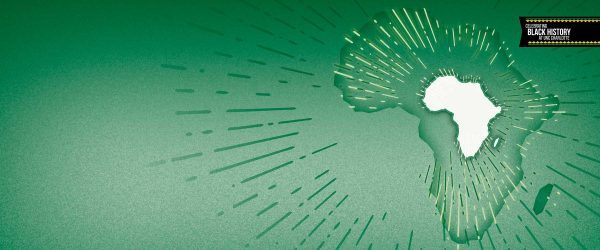
UNC Charlotte Department of Africana Studies faculty and affiliate researchers lead in the exploration of the African Diaspora, experiences of people around the world descended from native Africans. These researchers are making powerful contributions on issues relevant to the Charlotte community, state, nation and world.
Social mobility, equity, sustainability, urban education, liberation of the oppressed, religious traditions and media representations of people of African descent are examined through an interdisciplinary lens, applying principles from anthropology, history, religious studies, education, sociology, communication studies, political science, philosophy and other fields to address the complexity of the Black experience.
“Africana Studies is where disciplines are dissolved, repackaged and recombined to address questions beyond the capacity of one discipline,” said Chancellor’s Professor Akin Ogundiran, an internationally recognized archaeologist, historian and former Africana Studies chair. “African history is part of the African American story, and the African American experience is an integral part of American history.”
From Africana Studies’ 40 full-time faculty, affiliate and adjunct members, six share thoughtful insights into the scope and impact of their research:
Julia S. Jordan-Zachery, professor and chair of Africana Studies, is the author of the award-winning book “Black Women, Cultural Images and Social Policy.”
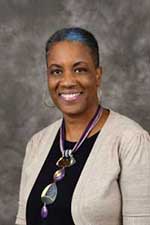 Jordan-Zachery’s research centers on the voices of Black womxn with an emphasis on contributing to Black women’s studies and with a focus on issues such as poverty, political inclusion and community organizing.
Jordan-Zachery’s research centers on the voices of Black womxn with an emphasis on contributing to Black women’s studies and with a focus on issues such as poverty, political inclusion and community organizing.
“Recognizing that the ‘master’s tools will never dismantle the master’s house’ (Audre Lorde), I have always sought tools, approaches, portals to better understand how Black womxn engage multiple systems, systems that tend to be oppressive. In all I do, I seek to contribute to the liberation of oppressed peoples. This is in line with Africana Studies, which is grounded in community and more specifically, the liberation of communities.”
Oscar de la Torre, associate professor of Africana Studies, is the author of “The People of the River,” a social and environmental history of Black communities in Amazonia, which won the 2019 Outstanding First Book Award from the Association for the Study of the Worldwide African Diaspora. He also has received a National Humanities Center fellowship.
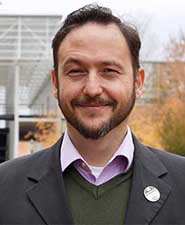 De la Torre researches the history of Afro-Latin America, with a special emphasis on Brazil and Cuba. He is writing a book on the Black inhabitants of the city of Matanzas in the 19th century, both enslaved and free. At the same time, he is investigating their life cycles and how they transitioned from being practitioners of Afro-Cuban religions to labor activists and eventually to patriot leaders during Cuba’s long wars for independence (1868 to 1898).
De la Torre researches the history of Afro-Latin America, with a special emphasis on Brazil and Cuba. He is writing a book on the Black inhabitants of the city of Matanzas in the 19th century, both enslaved and free. At the same time, he is investigating their life cycles and how they transitioned from being practitioners of Afro-Cuban religions to labor activists and eventually to patriot leaders during Cuba’s long wars for independence (1868 to 1898).
“I hope my research contributes to spark a vigorous fight against racism and racial inequality in Charlotte and North Carolina. By providing a comparative and international perspective on racial inequality, Black political movements and Black culture and religion, I hope to provide a stronger and broader knowledge of the nature and the causes of racism and racial inequality and of the most efficient policies against it.”
Julia Robinson Moore, associate professor of Religious Studies, is the author of “Race, Religion and the Pulpit: Rev. Robert L. Bradby and the Making of Urban Detroit,” which explores how the Second Baptist Church of Detroit’s minister became the catalyst for economic empowerment, community-building and the formation of an urban African American working class in Detroit.
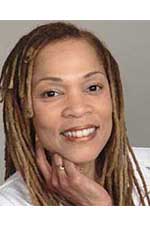 Moore examines the history of African American religion and its variations in North America and the Caribbean with a specific focus on the ways in which religion often has been used to justify acts of racism, racial violence and terrorism to unearth strategies for justice, healing and societal reform.
Moore examines the history of African American religion and its variations in North America and the Caribbean with a specific focus on the ways in which religion often has been used to justify acts of racism, racial violence and terrorism to unearth strategies for justice, healing and societal reform.
“My present research trajectory will have a considerable impact on the Charlotte region as it delves into Charlotte’s long history of racial segregation within its religious landscape. Specifically, my research will offer directives that aid Protestant communities in overcoming racial segregation that still persists within the various denominations throughout the city on Sunday morning.”
Akin Ogundiran, Chancellor’s Professor and professor of Africana Studies, Anthropology and History, was inducted as a Visiting Fellow of Magdalene College, University of Cambridge, in 2018 in recognition of his preeminent status as a researcher and scholar of emergent societies and social complexity in Yorubaland, Atlantic Africa and the African Diaspora during the past 700 years.
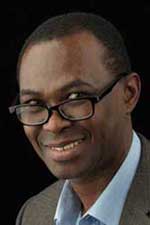 Ogundiran studies the deep history of Africa, which has the longest record of history on Earth, as the birthplace of humankind about 300,000 years ago. His research has evolved into three interrelated parts, with relevance to society today that becomes apparent through close attention to his work. The first area of emphasis is why and how people in the past created large-scale societies by trade and migration, striving to understand why these past complex systems sometimes floundered and collapsed. Second, his research seeks to understand how past societies managed and distributed resources and how this affected internal cohesion and the ability to withstand social or natural stresses such as long-term drought, climate change, war or regional/global competitions.
Ogundiran studies the deep history of Africa, which has the longest record of history on Earth, as the birthplace of humankind about 300,000 years ago. His research has evolved into three interrelated parts, with relevance to society today that becomes apparent through close attention to his work. The first area of emphasis is why and how people in the past created large-scale societies by trade and migration, striving to understand why these past complex systems sometimes floundered and collapsed. Second, his research seeks to understand how past societies managed and distributed resources and how this affected internal cohesion and the ability to withstand social or natural stresses such as long-term drought, climate change, war or regional/global competitions.
One aspect of social stress that he has studied extensively forms the third part of his research agenda: the impact of the Atlantic slave trade on African peoples, both on the continent and in the Americas. Over a period of 400 years (1500 to 1900), more than 15 million Africans were taken captive and forced on slave ships that brought them to the Americas, while many millions died in Africa or during the difficult journey across the ocean. His work has helped to answer questions of what made Africa the target of Atlantic slavery and the impacts of this experience on African culture and societies today.
“Charlotte resembles the kind of places that I study in ancient Africa. Some of the questions that I try to answer about the past — the development of cities and complex systems and the impacts of resource distribution on social well-being or social weakness — are relevant to some of the issues that Charlotte is grappling with today about social mobility, sustainability and equity.”
Debra Smith, associate professor of Africana Studies, examines representation and depictions of peoples of African descent in film and television as well as the intersections between media, race and education.
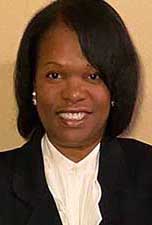 People of African descent historically have been stereotyped as savage, ugly, lazy, angry and buffoonish, among other representations, which have been reinforced by media and are still evoked today and have become a common-sense way of looking at individuals with Black skin, Smith’s research has found
People of African descent historically have been stereotyped as savage, ugly, lazy, angry and buffoonish, among other representations, which have been reinforced by media and are still evoked today and have become a common-sense way of looking at individuals with Black skin, Smith’s research has found
“I teach students to interrogate the media and to view it more critically for its inaccurate and stereotypical representations based upon one question: What do you know about a Black man/woman that you have never met based upon how they may have been depicted on television? Charlotte ranks in the top 10 cities for immigration. As our city becomes not only more populous but also more diverse, it is imperative that we become motivated and intentional about seeking first-hand knowledge of learning who our neighbors are, not on who the media tell us they are. In this way, we become more sympathetic, allied and knowledgeable about what impacts individuals outside our own front doors socially, politically, culturally, economically, etc. and what contributions they can offer our city.”
Greg Wiggan, professor of Middle, Secondary and K-12 education, conducts research to advance the urban educational focus of the University as well as the overarching vision of increasing equity and inclusion and internationalization across disciplines.
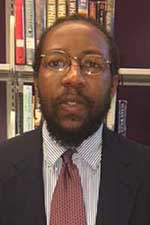 By focusing on the unique needs of minority groups, Wiggan seeks to empower and mitigate against oppression and inequities through inclusive curricula, pedagogy and policy. A Caribbean scholar, he also addresses world history, specifically Caribbean Studies, and the history of education as well as culturally inclusive school processes that promote high achievement among minority students.
By focusing on the unique needs of minority groups, Wiggan seeks to empower and mitigate against oppression and inequities through inclusive curricula, pedagogy and policy. A Caribbean scholar, he also addresses world history, specifically Caribbean Studies, and the history of education as well as culturally inclusive school processes that promote high achievement among minority students.
“My research is interdisciplinary by nature as it addresses Africa and Africans in the Diaspora through multicultural curriculum design and culturally responsive teaching practices. It examines the intersections of urban education, urban sociology and Africa Studies. Appropriate positioning in curriculum design provides a more inclusive and complete picture of human contributions. This is true for K-12 public schools and higher education. To this point, one of my most recent books, ‘The Healing Power of Education,’ addresses inclusive education as a source of healing for historically oppressed groups.”